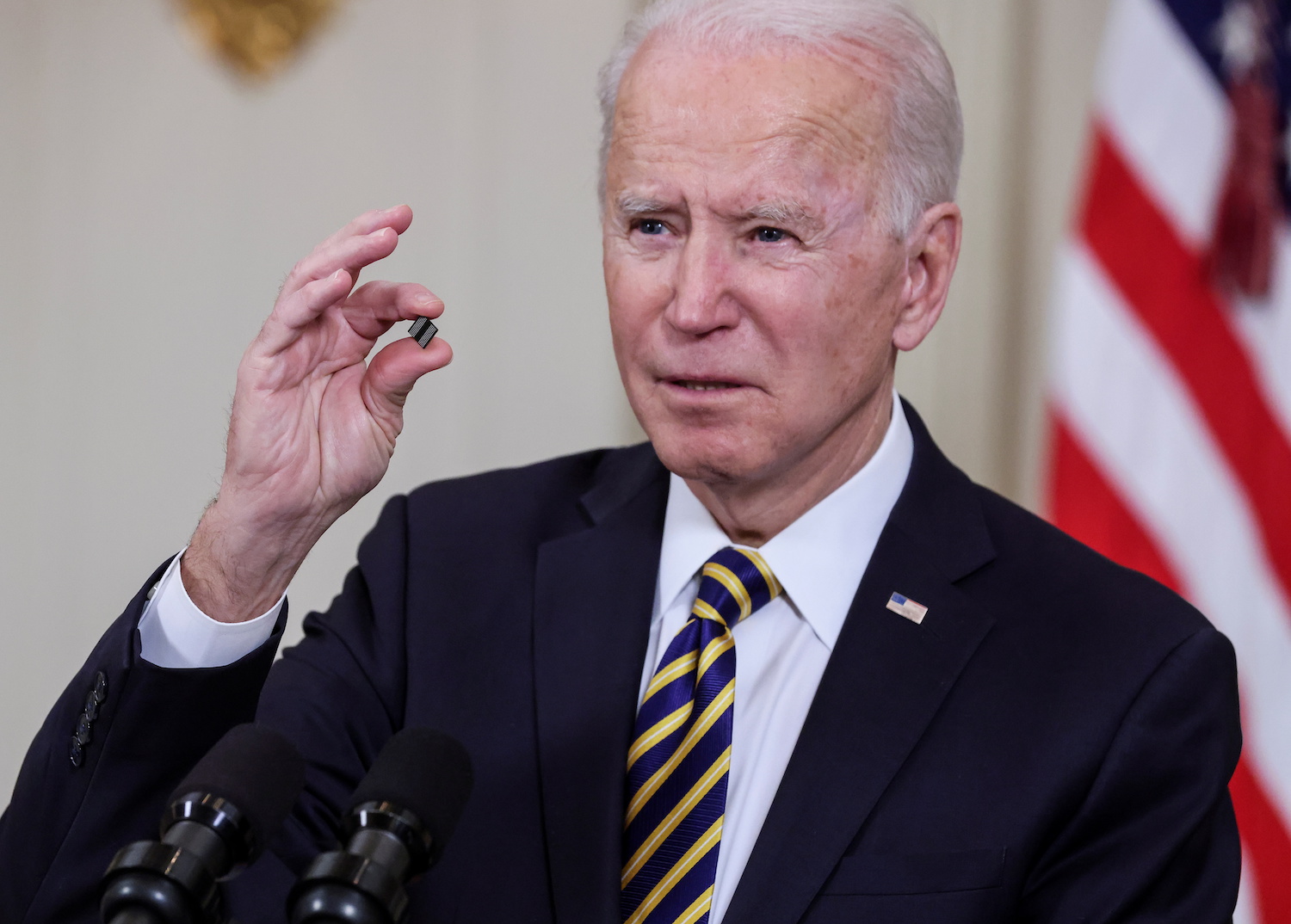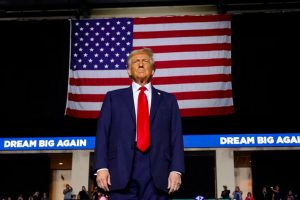(ATF) President Biden sent an effective warning to China on Wednesday February 24 as he signed an executive order for a review of supply chains that will cover semiconductor chips and rare earths.
Biden signed the executive order after a meeting with both Democratic and Republican politicians that he hailed as “like the old days” of agreeing on shared goals.
He did not mention China by name at the signing, but said: “We should not rely on a foreign country, especially one that does not share our interests or our values.”
Biden announced a 100-day review that will cover chips, rare earths, pharmaceuticals and the large capacity batteries that are key for electric vehicles. A broader one-year review will cover multiple other sectors including food production and technology.
The US President said he would seek $37 billion in funding for legislation to supercharge chip manufacturing in the United States as a shortfall of semiconductors has forced US automakers and other manufacturers to cut production.
“I’m directing senior officials in my administration to work with industrial leaders to identify solutions to the semiconductor shortfall,” Biden said on Wednesday. “Congress has authorised a bill but they need … $37 billion to make sure that we have this capacity. I’ll push for that as well.”
The executive order directs six sector reviews, modelled on the process used by the Defence Department to strengthen the defence industrial base. It will focus on defence, public health, communications technology, transportation, energy and food production.
The United States has been besieged by supply shortages since the onset of the pandemic, which squeezed the availability of masks, gloves and other personal protective equipment, hurting frontline workers.
Most pressing issues
A global chip shortage is the most pressing issue for US firms, with some automakers forced to temporarily suspend work and industry trade groups relentlessly urging action from the government. China is also scrambling to source more chips for its own industrial needs.
Biden’s new national economic council director Brian Deese moved last week to secure a greater share of chip supply from Taiwan for the US, while Japan and European countries are also trying to increase their supplies. Any moves by foreign governments to forge closer ties with Taiwan will almost inevitably raise tensions with China.
Rare earths could emerge as the next most important point of stress between the US and China, however. An internal debate appears to be taking place within China over whether or not to try to use an ability to control the price of many rare earths to demonstrate goodwill towards the new Biden administration, or as a weapon in an ongoing conflict with the US.
Reports said Chinese government officials recently asked industry officials how badly companies in the US and Europe, including defence contractors, would be affected if China restricted rare earth exports during a bilateral dispute.
China has in the past had mixed success in trying to use its dominance of rare earth production as a geopolitical tool, as previous price rises encouraged creativity in rare earth mining in other countries and ended up reducing the overall global Chinese share in some metals.
“Critical minerals are an essential part of defence, high-tech, and other products. From rare earths in our electric motors and generators to the carbon fibre used for airplanes – the United States needs to ensure we are not dependent upon foreign sources or single points of failure in times of national emergency,” a White House statement said on Wednesday before Biden signed the new executive order.
China has increased production quotas for the start of this year, but rare earth prices renewed their upward drive after the end of the recent Lunar New Year holiday, indicating that underlying demand will remain the main market driver – regardless of whether US/Chinese tensions mount or ease.
ALSO SEE:
- Rare earth prices go through the roof as China tightens supply
- China threatens rare earths blacklist as trade war expands
- Battle for rare earths escalates as Pentagon gets involved
- Beijing tightens reins on global rare earths supply
- 90 Chinese firms working to boost semiconductor supply chain
- China forming a national alliance to build its own chip industry
- Huawei counters US ban with MediaTek link-up
- Alibaba sinks billions into chip development
























